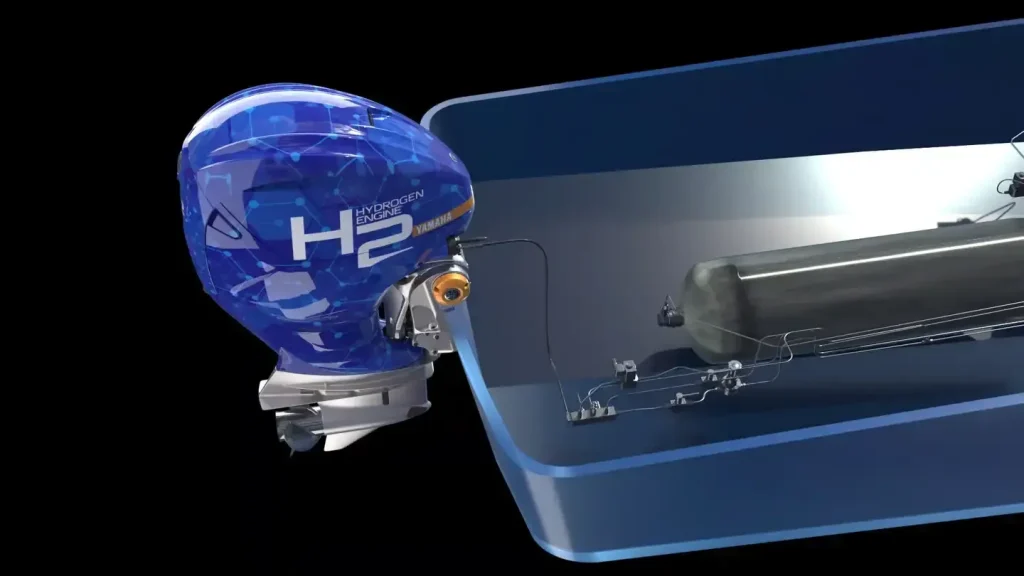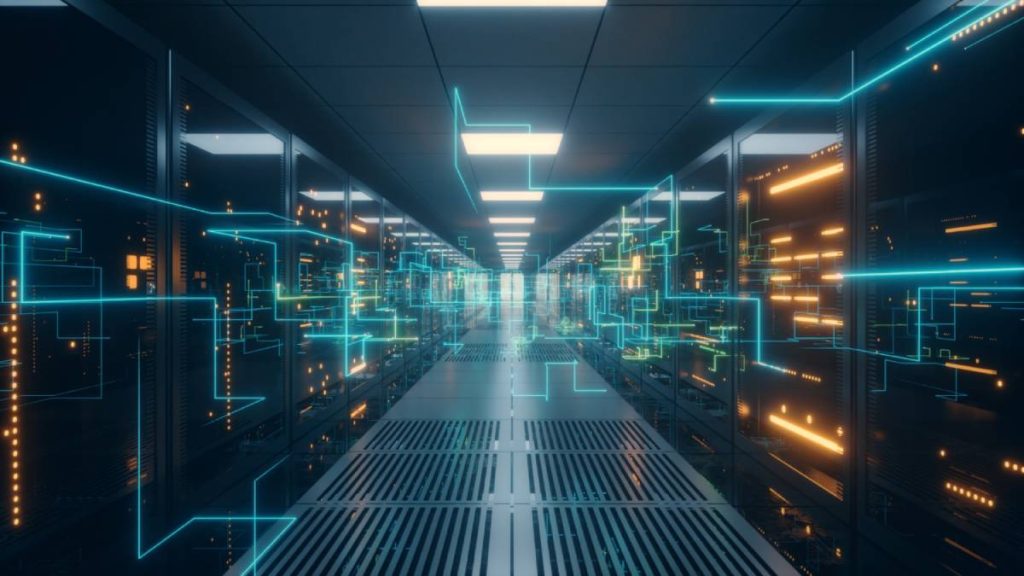The advent of the hydrogen outboard engine marks a groundbreaking shift in clean marine propulsion. This innovative technology, developed by Yamaha in collaboration with Roush Industries and Regulator Marine, promises to transform the boating industry by offering a sustainable alternative to traditional gasoline engines. With a focus on hydrogen-powered boats, Yamaha aims to enhance the ecological footprint of boating while setting ambitious carbon neutrality goals for 2050. This forward-thinking approach harnesses marine hydrogen technology to deliver a cleaner and greener boating experience. By integrating the Yamaha hydrogen engine into their offerings, the company positions itself at the forefront of sustainable boating innovation.
As the marine industry grapples with the necessity for eco-friendly alternatives, the introduction of hydrogen-powered outboard motors presents an exciting evolution in watercraft propulsion systems. These engines represent a leap towards sustainable boating practices, utilizing advanced hydrogen fuel technologies to minimize environmental impact. Notably, Yamaha’s dynamic hydrogen combustion engine reflects a commitment to harnessing clean energy sources for recreational activities on the water. By marrying traditional engineering prowess with cutting-edge fuel innovation, the boating sector is poised to embrace a future defined by cleaner waters and enhanced operational efficiency. Ultimately, this development may signify a watershed moment in the ongoing quest for green marine solutions.
Revolutionizing Marine Engines with Hydrogen Technology
The introduction of the hydrogen outboard engine marks a turning point in marine propulsion. Imagine the ease of powering your boat with clean hydrogen fuel, resulting in virtually zero emissions and a significant reduction in our overall carbon footprint. This innovative shift, spearheaded by Yamaha and its partners, underscores a commitment to sustainable boating practices and aims to pave the way for greener marinas worldwide. As the industry adapts to these advancements, the prospect of hydrogen-powered boats could redefine marine adventures for environmentally-conscious enthusiasts.
Hydrogen technology represents not just a new type of fuel but a significant leap towards clean marine propulsion. By focusing on alternatives to gasoline, Yamaha’s hydrogen outboard engine embodies the potential of marine hydrogen technology to lead to a more sustainable future for recreational boating. This initiative not only targets environmental goals but also enriches user experiences by offering quieter, more efficient engines that could become the standard in the industry.
Safety Innovations in Hydrogen Outboard Engines
Safety is paramount in the development of the hydrogen outboard engine. Yamaha has implemented cutting-edge safety features, including a standard hydrogen refueling connector and an advanced tank monitoring system that ensures tank conditions are continuously assessed. This attention to detail enhances the refueling process’s safety and efficiency, reflecting Yamaha’s commitment to creating technology that not only performs powerfully but also prioritizes user safety in aquatic environments.
Additionally, the onboard safety systems are designed to detect any discrepancies in hydrogen levels. With multiple detectors ensuring that any excess hydrogen is managed promptly, users can enjoy peace of mind while onboard. The intelligent ventilation system further exemplifies the company’s focus on safety, designed to allow any potential leaks to escape harmlessly above, where the hydrogen is rapidly dispersed due to its lighter-than-air nature.
The Future of Clean Marine Propulsion
As the marine industry witnesses significant innovation, the development of hydrogen outboard engines signifies the dawn of a new era for clean marine propulsion. With increasing public awareness of environmental issues, the demand for sustainable boating solutions is on the rise. Yamaha’s initiatives showcase the potential for hydrogen-powered boats, which could soon join the ranks of electric-powered vessels as viable alternatives to traditional gasoline engines.
This push towards sustainable boating technologies does not stop at hydrogen. Yamaha’s acquisition of the electric outboard manufacturer Torqeedo highlights a broader commitment to exploring various clean propulsion systems. By investing in diverse technologies, Yamaha aims to lead the charge toward an environmentally friendly marine industry where cleaner fuels and advanced propulsion methods are the norm, not the exception.
Boosting Hydrogen Infrastructure for Boating
The success of hydrogen outboard engines depends on establishing an effective hydrogen infrastructure. As Yamaha rolls out its hydrogen-powered boats, the collaboration with industry partners is crucial for building the necessary fueling stations. This infrastructure will not only service Yamaha’s innovations but serves as a stepping stone to broader adoption of hydrogen technology in the marine sector.
To support this initiative, discussions at major industry events, such as the Miami Boat Show and SEMA Show in Las Vegas, aim to engage stakeholders and address the logistical challenges of hydrogen deployment. The momentum generated by these conversations could inspire investments in hydrogen wares and propel greater visibility for sustainable boating solutions, creating an ecosystem where hydrogen can flourish.
Navigating Challenges in Hydrogen Technology
Despite the excitement surrounding hydrogen outboard engines, challenges remain. One of the significant hurdles is designing efficient storage systems. Currently, cylindrical hydrogen tanks take up valuable space on boats, constraining fuel capacity. Yamaha’s team continues to explore alternative tank designs to find solutions that optimize space utilization without compromising safety or performance.
Moreover, the supply chain supporting advanced marine hydrogen technology is still evolving. As manufacturers encounter difficulties sourcing components capable of withstanding extreme pressure conditions, the industry must work collaboratively to develop robust systems. Such challenges, however, also present opportunities for innovation as companies like Yamaha push the envelope in clean marine propulsion solutions.
Yamaha’s Commitment to Sustainable Boating
Yamaha’s vision extends far beyond the hydrogen outboard engine initiative; it aims to redefine the future of boating through sustainable practices and innovative technologies. By focusing on an integrated approach that combines electric propulsion with hydrogen technology, the company sets a championship example that could shift perceptions in the marine industry. Their strategy aligns with global efforts to achieve carbon neutrality by 2050, showcasing a genuine commitment to environmental stewardship.
The ongoing development and fine-tuning of the hydrogen outboard engines signal Yamaha’s dedication to creating products that not only meet consumer expectations but also foster a healthier planet. As they gather performance data and user feedback from real-world testing, Yamaha is positioned to lead the way toward a more sustainable future for recreational boating, inspiring both new and seasoned boaters.
Yamaha’s Innovations Set to Transform Marine Adventures
The introduction of Yamaha’s hydrogen outboard engine is set to revolutionize marine adventures, offering boaters cleaner and more efficient ways to enjoy the water. With the backing of cutting-edge research and development, these hydrogen-powered vessels promise to deliver high performance while generating significantly lower emissions. This crucial balance between power and ecology could attract a new wave of environmentally-conscious boaters seeking personal enjoyment without compromising their commitment to sustainability.
Furthermore, by showcasing these innovations at renowned boat shows and industry events, Yamaha invites conversations about the future of hydrogen-powered boats. These engagements could likely attract partnerships that stimulate advancements in marine hydrogen technology, ensuring that the company not only leads in product innovation but also drives industry-wide change towards efficient, eco-friendly boating solutions.
Exploring the Economic Impacts of Hydrogen Boats
The advancement of hydrogen outboard engines not only stands to impact ecology but could also bear significant economic effects. As the marine industry shifts towards hydrogen-powered boats, new market opportunities may arise, from hydrogen fuel production to hydrogen-specific marine infrastructure development. This transition could stimulate job creation in sectors focused on renewable energies and sustainable marine technologies, showcasing how environmental initiatives can align with economic growth.
Moreover, with increasing consumer interest in sustainable energy solutions, products like Yamaha’s hydrogen outboard engines may attract investments and partnerships. Businesses in the boating industry could find new ways to engage with eco-aware customers, fostering loyalty based on shared values around sustainability. Therefore, the expansion of hydrogen technology within the marine sector could catalyze meaningful economic changes while addressing pressing environmental concerns.
Performance Insights from Yamaha’s Hydrogen Outboard Testing
Yamaha is focused on fine-tuning its hydrogen outboard engine’s performance and assessing its range on a single tank of hydrogen. As the development team runs rigorous tests, they gather crucial data regarding fuel efficiency and the overall handling of hydrogen-powered boats, which could significantly shape future models. With ongoing performance optimization, Yamaha aims to exceed current expectations regarding the range and power of sustainable boating solutions.
Listening to user experiences and integrating feedback will also play a vital role in this iterative process. Yamaha’s commitment to achieving optimal performance reflects an understanding that the success of hydrogen-powered outboard engines hinges on their reliability in real-world applications. Therefore, by refining their designs based on performance insights, Yamaha will be better equipped to win over enthusiasts and set a precedent for how hydrogen fuels the future of the marine industry.
Frequently Asked Questions
What is a hydrogen outboard engine and how does it work?
A hydrogen outboard engine is a marine propulsion system that uses hydrogen fuel instead of gasoline to power boats. By combusting gaseous hydrogen, these engines provide clean energy, significantly reducing emissions and contributing to sustainable boating practices.
How does Yamaha’s hydrogen outboard engine differ from traditional outboard engines?
Yamaha’s hydrogen outboard engine is based on the modified XTO 450 model, which has been adapted to utilize hydrogen’s unique properties. Modifications include changes to fuel lines, cylinder heads, and injectors, alongside the incorporation of high-pressure tanks designed to store hydrogen safely during operation.
What are the safety features of hydrogen outboard engines?
Safety is paramount in hydrogen outboard engines. Yamaha’s system includes a tank monitoring system that communicates with fueling stations, hydrogen detectors to alert the captain of potential leaks, and automatic shutdown mechanisms if hydrogen levels exceed safe limits. Ventilation systems are also in place to ensure leaked hydrogen can escape safely.
Is hydrogen-powered boating a sustainable alternative to traditional boating?
Yes, hydrogen-powered boats are part of the clean marine propulsion movement aimed at achieving sustainability. By using hydrogen fuel, these boats significantly lower carbon footprints compared to gasoline-powered vessels, aligning with global initiatives for greener marine technologies.
What are the challenges faced by the hydrogen outboard engine technology?
Challenges for hydrogen outboard engines include the need for more compact tank designs to optimize storage within the boat, sourcing reliable high-pressure components, and developing a robust hydrogen fueling infrastructure in marine environments.
How many hydrogen outboard boats has Yamaha developed?
Yamaha has developed two hydrogen outboard boats: one for display purposes and another for real-world testing. These prototypes are critical for advancing hydrogen marine technology and gathering performance data.
What is the future outlook for hydrogen outboard engines in the marine industry?
The future of hydrogen outboard engines looks promising, with ongoing developments aimed at optimizing performance, enhancing safety, and improving the refueling process. As awareness and infrastructure grow, hydrogen technology could revolutionize clean marine propulsion and create a sustainable future for boating.
Can hydrogen outboard engines be refueled easily?
Hydrogen outboard engines are designed for efficient refueling at specially equipped stations. Yamaha is currently working on making the refueling process faster and more convenient, which is crucial for wider adoption of this technology.
What does Yamaha’s initiative in hydrogen marine technology imply for the boating industry?
Yamaha’s initiative reflects a significant shift in the boating industry towards greener practices. By investing in hydrogen technology, Yamaha is committing to carbon neutrality goals and advancing clean marine propulsion, which could inspire broader changes in marine design and fuel solutions.
What are the potential benefits of hydrogen-powered boats for the environment?
Hydrogen-powered boats can help reduce greenhouse gas emissions, minimize water pollution, and contribute to cleaner oceans. As a renewable energy source, hydrogen fuels can enable a sustainable future for marine travel and recreation, aligning with global environmental goals.
| Feature | Details |
|---|---|
| Hydrogen Outboard Engine | Developed by Yamaha in collaboration with Roush Industries and Regulator Marine to create a sustainable boating solution. |
| First Fill-Up | The modified Regulator Marine 26XO boat was filled with hydrogen at a fueling station, marking a significant milestone. |
| Engine Modifications | Based on Yamaha XTO 450 engine, modified for hydrogen with changes to cylinder heads, fuel lines, and injectors. |
| Safety Features | Equipped with hydrogen detectors, tank monitoring systems, and specialized ventilation for safety during operation. |
| Showcase Events | Showcased at the Miami Boat Show and the SEMA Show to engage discussions on hydrogen infrastructure. |
| Future Goals | Aim to integrate more efficient storage solutions for hydrogen and enhance refueling speed and convenience. |
Summary
The hydrogen outboard engine represents a groundbreaking advancement in marine technology, with the potential to revolutionize how we approach boating. Developed by Yamaha, this innovative engine utilizes clean hydrogen fuel instead of traditional gasoline, marking a significant step toward a more sustainable future for the marine industry. As the project progresses, Yamaha’s commitment to optimizing performance and safety establishes the hydrogen outboard engine as a promising alternative for environmentally-conscious boating enthusiasts. With ongoing developments and successful demonstrations, the hydrogen outboard engine is set to pave the way for cleaner, greener boating experiences in years to come.



